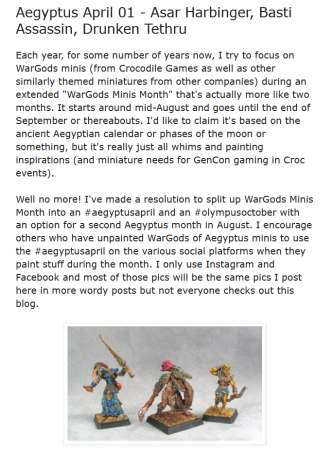
A Tale of War at the Dawn of Time
336 pages.
I've heard a lot of discussion about Harry Turtledove on our forums, so I decided to give one of his books a try. According to the San Jose Mercury News (as quoted on the back cover of this book):
...if you've already been there, done that with real-history novelists Patrick O'Brian, Dorothy Dunnett, or George MacDonald Fraser, for your Next Big Enthusiasm, you might want to try Turtledove. I know I'd follow his imagination almost anywhere.
My first complaint is that it soon becomes apparent, as the author dumps all kind of backstory at me, that this book is part of an ongoing series. (The series being Beyond the Gap, The Breath of God and The Golden Shrine.) If I had known I was dropping into the final book of a trilogy, I wouldn't have bought it! (Which, I suppose, is why the publisher leaves that information off the book...)
So it turns out that the ice age is over, the glaciers are melting, and a passageway - The Gap - has allowed transit for the first time between two lands. Storming through The Gap come the Rulers - so-called because they consider themselves born to rule, and everyone else to be a 'herd animal' - a nomadic people riding war mammoths and big deer, with powerful, magic-wielding shamans. Their victims so far have been the Bizogots, tribes of Viking-types that live on the tundra; and the Raumsdalian Empire, a medievalish autocracy run by an incompetent emperor. The Bizogots have been decimated and scattered; the Empire has suffered a string of defeats.
As this novel begins, a ragtag force of survivors is roaming about the tundra, fighting Ruler patrols and hoping to live another day. Most are Bizogots gathered from the shattered clans. Their leaders are Count Hamnet Thyssen, exile from the Empire; his jester-like friend Ulric; his current girlfriend, the cannibal shaman Marcovefa; and Trasamund, a Bizogot clan leader.
Count Thyssen is an aging nobleman, who fights well but often suffers from despondency. He also spends a lot of time musing over his troubled love life, including his ex-wife Gudrid and ex-lover Liv, as well as his current love, Marcovefa. Thyssen also spends a lot of time fretting over the future, yet oddly, usually needs prompting by Ulric before coming up with any sort of strategy.
Thyssen, who wants to defeat the Rulers even if it means saving the emperor who exiled him, faces the seemingly endless resources of the Rulers, who send force after force against him. His only hope is Marcovefa, who so far has proven to be more powerful than any shaman of the Rulers.
This novel is basically the tale of Thyssen's force as it wanders from battle to battle for a year, from tundra to forest and field (and back again), while the Rulers throw ever more challenging magic against Marcovefa, and fight them in battle after battle.
And then miraculously at the end, when all seems lost, the Rulers are utterly defeated, lost secrets are revealed, past injustices are righted, and the heroes go home. All of this is accomplished due to fate, deity, or the Golden Shrine (or is that all the same thing?), which has caused the right people to be in the right place at the right time, and then inspired the right person to take the needed, climactic action.
I was greatly disappointed by this novel. The heroes mostly stumble from event to event, with their sole accomplishment being survival. The triumphant ending is then accomplished, not by the heroes themselves, but by divine forces... not the stuff great fantasy is made of.
This lame plot might have been excused if the journey had been interesting or the characters inspiring, but there's none of that. Ulric deliberately annoys, Trasamund fumes, Thyssen sulks, and the dialogue reads like it was written by a twelve-year-old. The novel is also padded with encounters that have nothing to do with the overall plot, and characters from the previous books are coincidentally re-introduced - not once, but twice! (Got to have everyone on hand for the final book in the series, I suppose.)
Then there's the questionable 'humor' of an attempted suicide scene, and the overly drawn-out and boring musings over the ethical question of whether you can make love to (rape?) your entranced girlfriend if you think it might break the sorcery. And the silliness of characters involved in constant warfare for a year... without even getting hurt?
Then there are some yawning plot holes. (For instance, if Marcovefa is so critical to the group's survival, then how do they survive once she's knocked out of action? Why don't the Rulers make another try at their 'kill everyone' spell, since they know she's not able to defend against it?) And, given the final revelations of this novel, the entire setting makes little sense (where do the mammoths come from?). Plus the Golden Shrine, when finally 'revealed', is left frustratingly vague (and why are they quoting the Old Testament?).
Wargamers might be interested in the many battles, with riding deer, armored cavalry, war mammoths, barbarian warriors, and battling shamans. However, while the author typically introduces a new wrinkle to keep each successive battle interesting, the outcomes are generally simplistic (i.e., the correct tactic is applied, the opposing force runs away). It would also be difficult to replicate the book's magical combat, in which Marcovefa usually outperforms any number of enemy shamans.
Maybe this would have been a better experience if I had known about the earlier books and read them first. (I doubt it.)
If this is a representative sample of Turtledove's work... he's not remotely comparable to Patrick O'Brian, Dorothy Dunnett, or George MacDonald Fraser. Avoid this book!
Reviewed by ![]() Editor in Chief Bill
Editor in Chief Bill ![]()
![]() .
.










